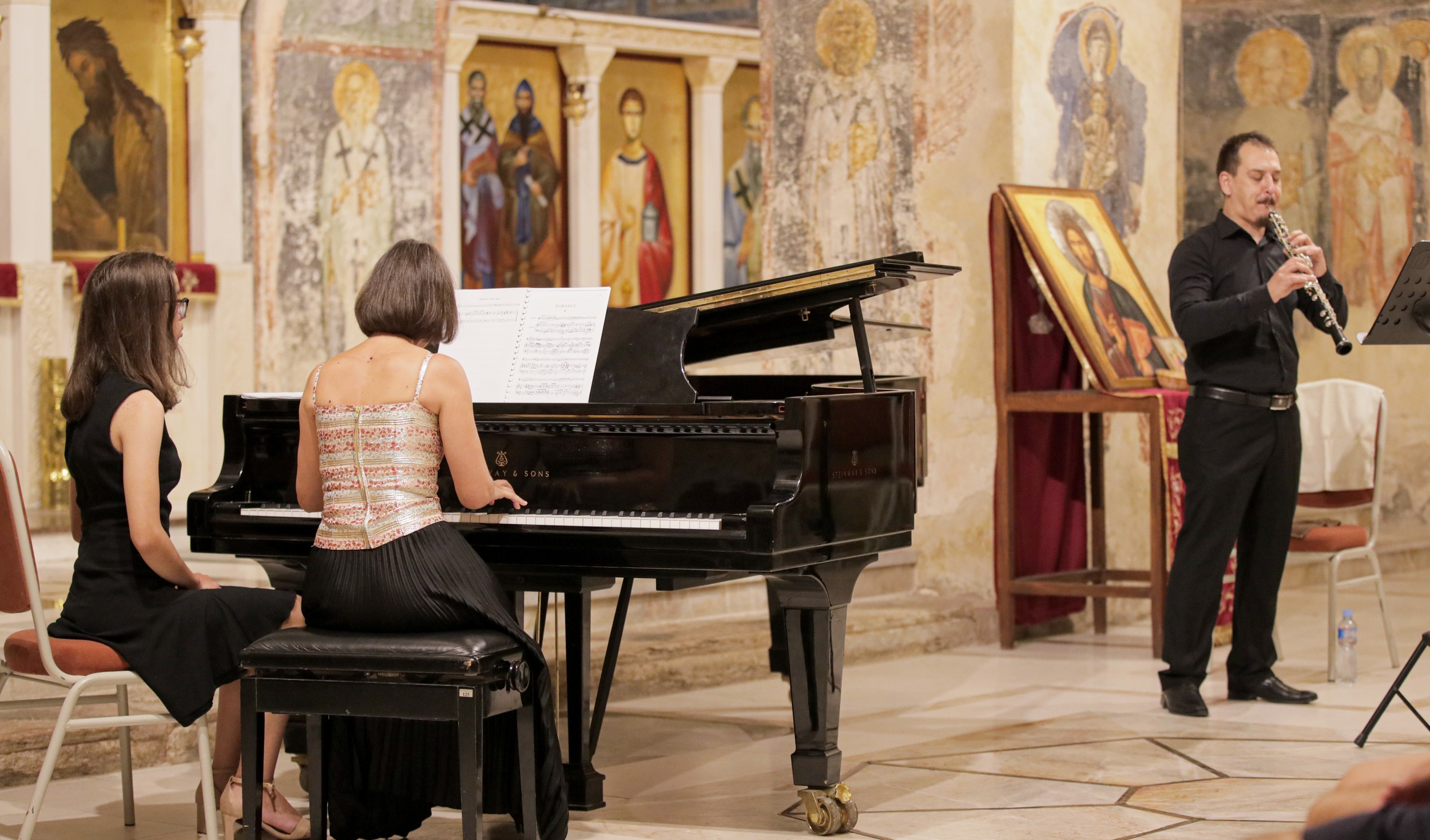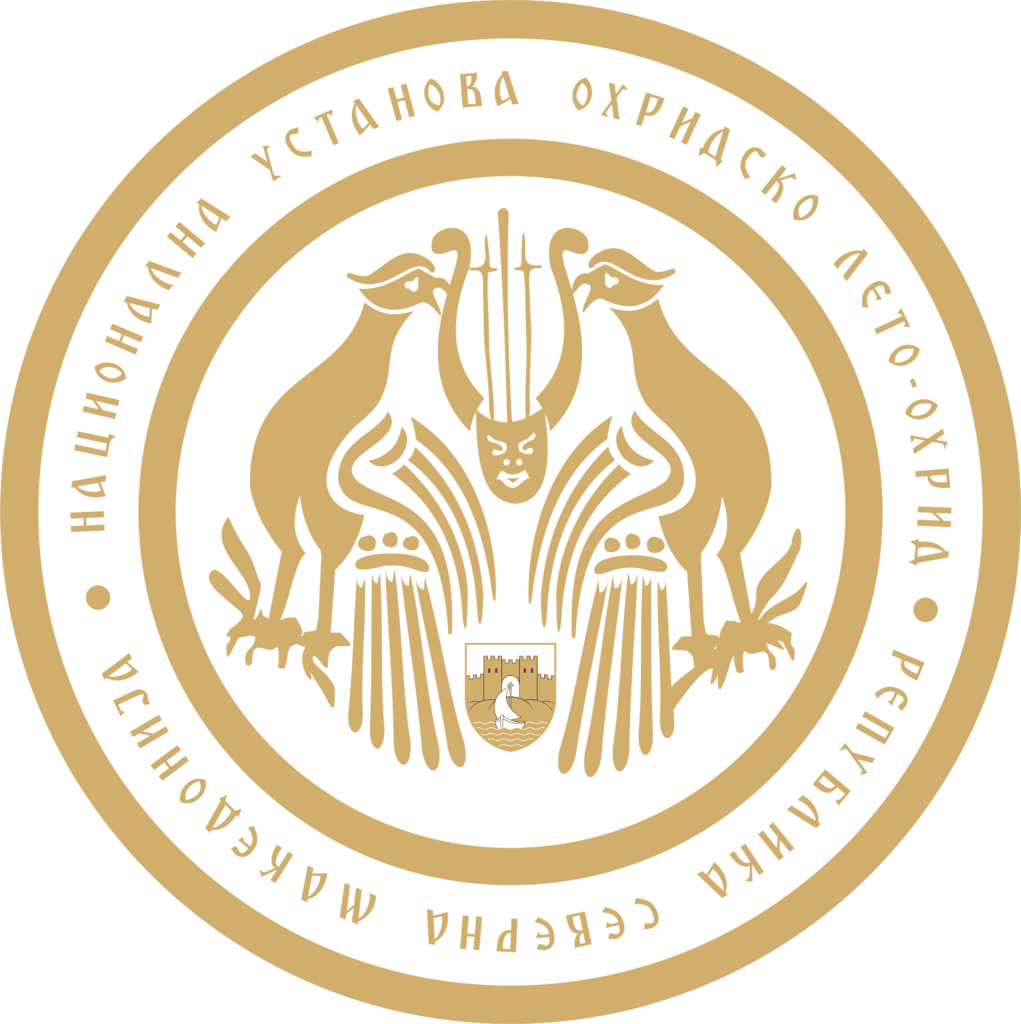
It is an especially pleasant experience at Ohrid Summer Festival when there are performances by Macedonian artists, such as the concert of the oboist Tome Atanasov and the pianist Marija Gjoshevska. Both instrumentalists, in their most productive and most productive performing age, proven as soloists nationally and internationally, presented their collaboration (started earlier in other chamber orchestras) for the first time as a duo on this concert. Uniting their creative energies and artistic capacities, they made a finely polished sound whole, coloured with the individual interpretative expression of each of them, mutually contributing and supporting each other during the whole performance.
Through the programme, seemingly extensive at a first glance, but later, during the concert, and especially after its finishing, to change the impression due to the inspirational-to-perform and interesting-to-listen pieces for oboe and piano by world-renowned composers (French, German, Argentinian, Macedonian), and especially due to the exuberant interpretation, Atanasov and Gjoshevska lead the audience through various stylistic periods, starting from the Baroque, through the Romanticism, tackling the aesthetics of Impressionism, up until the contemporary music trends. The key programme accent was on the cyclical form – sonata, where the audience had the opportunity to listen to three sonatas for oboe and piano, by three different authors, conceptually and stylistically different from each other. Starting with the Baroque sonata for oboe and piano in C major by the Flemish composer Jean-Baptiste Loeillet, Tome Atanasov and Marija Gjoshevska presented a suggestive and confident performance, with precise work on all details in the four-movement score. Atanasov brought the wide and calmly musical themes of a naively-idyllic character in the first and third movement (Largo cantabile and Largo espressivo) very emotionally and stable, contrasting them with a joyful and playful interpretation in the second and fourth movement (both Allegro), supported by a dynamically equal performance of the part for piano which Gjoshevska mastered impeccably.
In the whole programme concept, the Sonata for oboe and piano by the Macedonian author Stojan Stojkov took a special place. In the sonata, both musicians ‘revived’ the folklore allusions Stojkov makes through the characteristic unequal measures and melodic solutions linked to folklore sources, using the structure of the classical genre model of a sonata cycle of three movements (Allegro, Andante Pastorale and Allegro Scherzando). In the performance of this sonata, the artists’ scherzo-like character in the interpretation got highlighted, as well as their creativity in the precise phrasing and dynamic nuancing.
Atanasov and Gjoshevska, readily and very self-confidently answered the distinctively complex dynamic and intonative challenges (for the oboe, even extremes, moving the melody line to the lowest and highest limits of its tone range) in the complex sonata by Francis Poulenc, primarily exposed in its second (Scherzo) and third movement. Structured with a slow-fast-slow movement, contrary to the traditional sonata concept fast-slow-fast movement (the third movement “Déploration” is, in fact, the last piece written before Poulenc’s death. The author, a distinhuished representative of the “French six-some”, dedicates his sonata to the great Russian composer Sergey Prokofiev, which is especially notable in the interweaving of the French and Russian atmosphere in its melody and harmony structure.
Besides the sonatas, the programme contained “Romance No.3” from the cycle “Three romances for oboe and piano op.94” by the German master Robert Schumann, as one of the most valued pieces from the Romanticism repertoire for oboe. Skillfully moving through the Schumann’s scores, the performers exposed the rich colour of the piece, picturesquely presenting the changes of dramatic moods.
In the spirit of Romanticism, as a final composition in the first part of the recital, we had the opportunity to attend the performance of the “Solo de Concours No.2” by the French composer Charles Colin (an oboist himself), where Atanasov had a great opportunity, which he used to the maximum, to show his preparedness, to which Gjoshevska responded equally all the way through.
In the Impressionist composition “Fantasie Pastorale” by Eugene Bozza (also representative of the French composer school), starting with an emotional cadence in the portraying of the pastoral element, and then gradually developing the fantasy aspect, especially in the majestic culmination, both artists in a way made a reminiscence of their partnership through the concert. Giving the advantage at the beginning to Atanasov in the virtuosity presentation of the oboe part, from the deep piano phonic accompaniment, Gjosjevska, in the developmental and final part, equally virtuously, with her rich and interesting harmony, ‘spoke’ to his oboe.
The concert evening was finalised by the artists with a very famous, gentle and melancholic theme “Oblivion” by the Argentinian author Astor Piazzola (music association of the film “Henry IV”), calming the atmosphere created by the impressions from their performance.
With performing such conceptualised programme, the Macedonian instrumentalists Tome Atanasov and Marija Gjoshevska one more time proved that both of them are outstanding professionals, whose technical preparedness and interpretative creation are on a very high level.
Aleksandar Trajkovski

